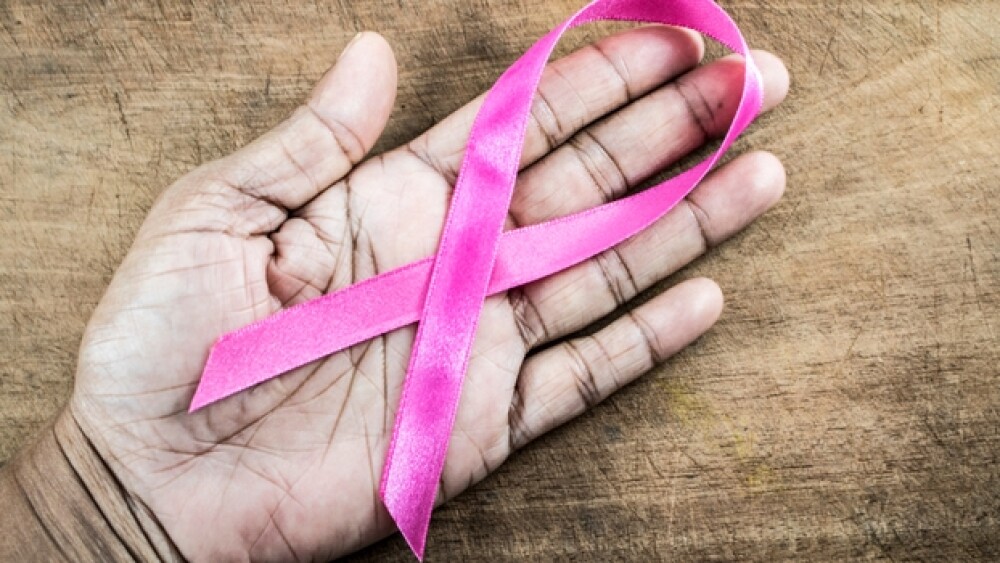Patients with different forms of breast cancer could soon have different treatment options following multiple presentations at the European Society of Medical Oncology meeting.
Patients with different forms of breast cancer could soon have different treatment options following multiple presentations at the European Society of Medical Oncology meeting. Both Novartis and AstraZeneca shared positive Phase III data from clinical studies that could pave the way for new approvals.
AstraZeneca and partner Daiichi Sankyo shared the results of a Phase III study that could shift standard-of-care treatment options for prescribers in HER2 breast cancer. Data showed Enhertu fam-trastuzumab deruxtecan-nxki), an antibody drug conjugate (ADC), demonstrated superior progression-free survival to Genentech’s Kadcyla (trastuzumab emtansine) as a potential treatment for HER2-positive unresectable and/or metastatic breast cancer who were previously treated with trastuzumab and ataxane. Data from the Phase III DESTINY-Breast03 study showed Enhertu provided a 72% reduction in the risk of disease progression or death compared to Kadcyla, a HER2-directed ADC. The companies said median PFS for patients treated with Enhertu had not been reached compared to just less than seven months for the Genentech drug.
The Phase III data also showed that patients who received Enhertu saw a three-fold improvement in PFS of 25.1 months compared to 7.2 months for Kadcyla. Also, AstraZeneca and Daiichi Sankyo reported that a consistent progression-free survival benefit was seen across subgroups of patients treated with Enhertu, including those with a history of stable brain metastases.
Other data from the study showed a strong trend toward improved overall survival in patients treated with Enhertu. The companies said 94.1% of patients treated with Enhertu were still alive after one year, compared to 85.9% of patients treated with Kadcyla. However, the companies noted that this data has not been fully analyzed and is not statistically significant.
One statistically significant measure is the confirmed objective response rate. AstraZeneca and Daiichi Sankyo said ORR more than doubled for Enhertu patients compared to Kadcyla, 79.7% versus 34.2%, respectively.
Dr. Susan Galbraith, who heads AstraZeneca’s oncology research and development programs, called the results “ground-breaking.”
“Enhertu tripled progression-free survival as assessed by investigators, and provided a disease control rate exceeding 95% compared 77% for T-DM1 (Kadcyla) in DESTINY-Breast03,” she said. “These unprecedented data represent a potential paradigm shift in the treatment of HER2-positive metastatic breast cancer, and illustrate the potential for Enhertu to transform more patient lives in this earlier disease settings.”
Swiss pharma giant Novartis also posted positive late-stage data for the treatment of HER2 breast cancer. Data from the Phase III MONALEESA-2 study showed Kisqali (ribociclib) combined with letrozole hit the mark in overall survival after five years in postmenopausal women with hormone receptor-positive, human epidermal growth factor receptor 2-negative (HR+/HER2-) advanced or metastatic breast cancer with no prior systemic treatment for advanced disease.
Data from the Phase III study showed Kisqali and letrozole provided a statistically significant and clinically meaningful improvement in survival compared to placebo plus letrozole. The Kisqali combination provided a median 63.9 month survival compared to 51.4 months for the placebo. Additionally, Novartis said following a median follow-up of 6 and one-half years, the median OS was over one year. Data from the MONALEESA-2 study showed that after five years, patients treated with Kisqali, a CDK4/6 inhibitor, and letrozole had more than a 50% chance of survival.
The primary progression-free survival endpoint in the Phase III study was met at the initial analysis. These new OS results mark the third statistically significant and clinically meaningful survival benefit achieved by Kisqali in the MONALEESA program. Novartis will submit the data to global health authorities to support label updates.
Novartis Oncology President Susanne Schaffert, Ph.D., said the company’s mission is to improve and extend the lives of people with cancer.
“For people with HR+/HER2- advanced breast cancer, these data are not just numbers and may mean more life milestones—yet, we will not rest as we continue to investigate the full potential that Kisqali can bring to patients,” Schaffert said in a statement.





